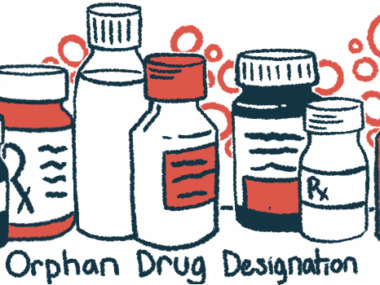Sanofi multiple myeloma treatment gets FDA orphan drug status
Patients sought for clinical trial in U.S., other countries
Written by |

The U.S. Food and Drug Administration (FDA) has granted orphan drug designation to SAR446523, an investigational therapy being developed by Sanofi for people with relapsed or refractory multiple myeloma.
The FDA gives this designation to experimental therapies designed to treat conditions that affect fewer than 200,000 Americans, with the aim of incentivizing investment in treatments for rare diseases. Therapies given orphan drug designation get perks including a guarantee of seven years’ market exclusivity if approved.
“The orphan drug designation is a significant milestone in our ongoing efforts to develop innovative treatments in multiple myeloma,” Alyssa Johnsen, MD, PhD, global therapeutic area head of immunology and oncology development at Sanofi, said in a company press release. “This underscores our commitment to multiple myeloma, a disease for which we have acquired strong expertise with the development of another widely used and approved immunotherapy treatment.”
Clinical trial seeks 82 adult patients with hard-to-treat disease
The news comes as SAR446523 is being tested in its first-in-human clinical trial. The Phase 1 study (NCT06630806) is open to adults with multiple myeloma whose disease is relapsed or refractory — meaning the cancer has failed to respond, or has come back after initially responding — after at least three prior lines of treatment. Recruitment is ongoing at two sites in the U.S. as well as other countries, including Canada, and Australia.
Multiple myeloma is caused by the abnormal growth of plasma cells, a type of immune cell. SAR446523 is an antibody-based medication designed to target a protein called GPRC5D (G-protein coupled receptor family C group 5 member D), which is found at low levels in healthy tissue but is expressed at high levels of plasma cells in myeloma patients. When SAR446523 binds to GPRC5D on myeloma cells, the therapy aims to activate the immune system to kill the cancer cell.
The trial is seeking to enroll 82 adults. In the first part of the study, up to six different dose levels of SAR446523 will be tested, with the main goal of evaluating safety. Based on results from the first part, two doses will be selected for testing in the second part of the study, which aims to evaluate response rates to inform dosing regimens that will be used in future testing.
Results are expected in late 2028, according to the trial’s registration page.



